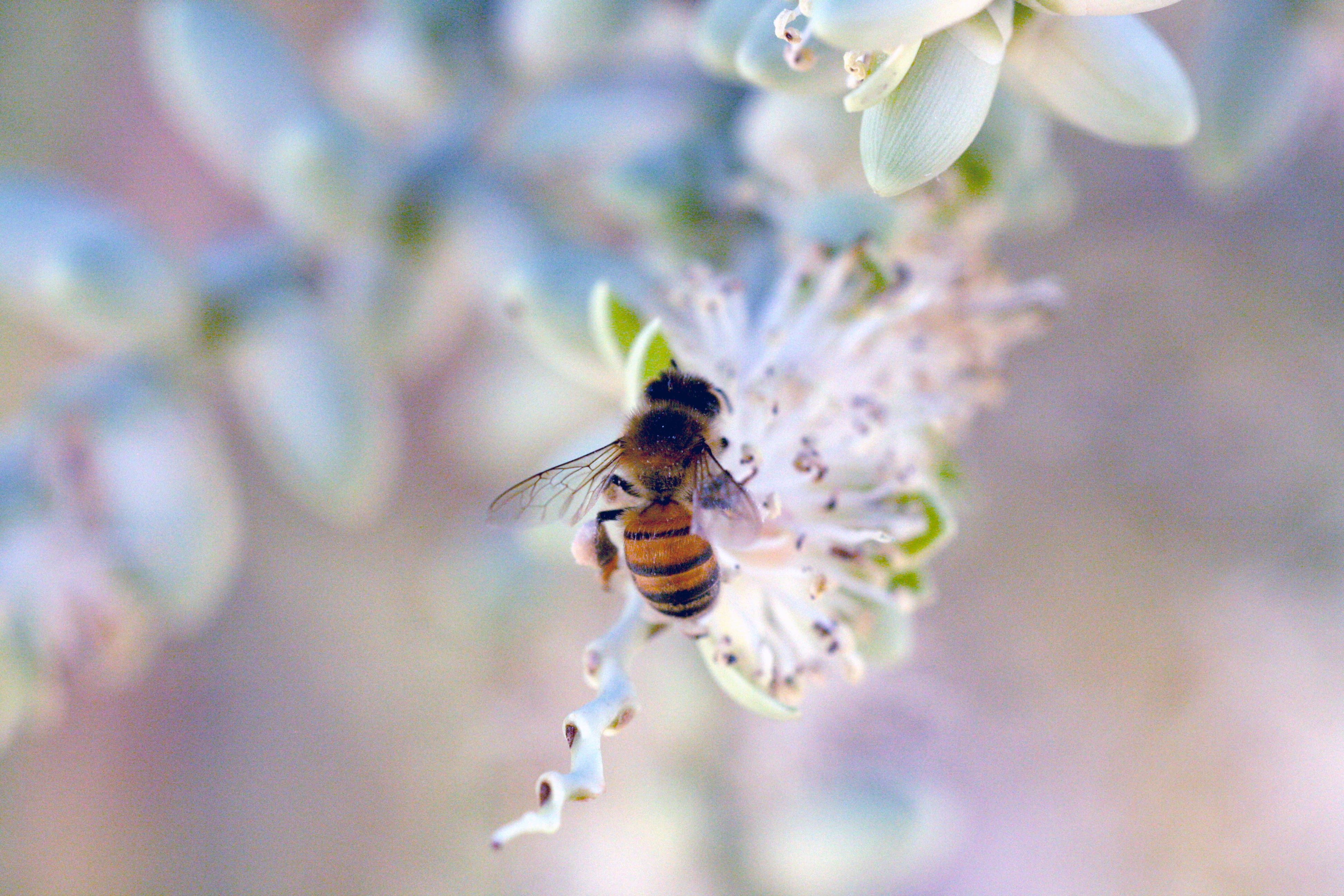How to humanely remove a bees nest from your home, according to experts
Dealing with your bees nest without harming or stressing the colony is surprisingly simple


We’re all for fostering bee-friendly gardens, especially given that the vital pollinators are considered endangered, but, as selfless as it might seem, co-existing in close quarters with a colony of bees in your backyard or patio, on the other hand, is not necessary.
“Most people are aware that bees play a vital role in nature, pollinating crops and helping to ensure food supplies,” says Jordan Foster, pest expert. “However, having bees around your home can cause trouble as they sting and it can be dangerous to people with severe allergies.”
Thankfully, if you do find yourself with a bee problem on your hands, there are simple procedures you can follow to encourage the colony to move out of your backyard or patio without causing unnecessary harm or stress.
Below, we spoke to a handful of professional entomologists, pest experts, and amateur beekeepers to get their insights on exactly what to do if you need to remove a bees nest from your home—and the preventative measures you need to take in order to keep stinging insects from moving into your yard.
- Keep reading: How to get rid of flying insects in your home
I just found a beehive near my house. What should I do next?
Discovering a beehive in a high-traffic area can be a jarring experience. Of course, you don’t want to harm or disturb the hive—but you also don’t exactly want to share your space with a colony of stinging insects.
“Humanely removing bees from your backyard does take a bit of time, but it can easily be accomplished with minimal use of tools and little to no danger to you,” says Dan Bailey, President of WikiLawn Austin Lawn Care.
Determine the location of the bees.
If you find a swarm of bees in your home, stay calm and keep your distance while you examine the situation—is there a hive nearby or is it a visiting colony?. “Bees tend to be most active during the daytime and will leave once it becomes dark,” explains Foster. “Do not attempt to move the hive if there is one! Bees will swarm out to protect it and everybody around is getting stung.”
Get small space home decor ideas, celeb inspiration, DIY tips and more, straight to your inbox!
Smoke them out
“It’s very wise of any homeowner to relocate bees humanely as they are beneficial insects and amongst the most important pollinators. If too many bees are bothering you, you can apply the following secure repellents to give them a smooth and clear signal to go away,” says Nicolas Martin, entomologist and pest control consultant.
When bees smell smoke, they think that it comes from a forest fire and decide to go away to a safer location. The chances they go back are very low. “You can start a small smoky fire with dead firewood, but don’t stand near until they go away,” explains Martin. “Scared bees are aggressive and can bite you.”
According to Bailey, it's best to do this at night when bees will be the least active. “Wait at least an hour, then check the hive for any lingering bees. You may want to carry some incense for a quick burst of smoke if there are stragglers. Once all are gone, you can remove the hive.”
- Keep reading: How to make a bee hotel
Consider vinegar
Vinegar spray is a great natural way to get the bees out of your yard. “In addition to being a simple, and easy-to-make product, vinegar is also environmentally friendly because it does not rely on insecticides or toxic chemicals,” explains Foster. Spray the vinegar on the area surrounding the hive.
- Keep reading: How to use vinegar to clean your home
Sprinkle some cinnamon
“If you find a hive of honey bees and want them to find a new home without harming them, sprinkle cinnamon around their hive for about a week,” suggests Foster. “The smell will convince them to find a new place to live.”
If all else fails, call a professional
Calling a professional to move the beehive is really the best option—especially if the other options haven’t worked out in your favor.
“Bees can make nests in tight spaces like under siding and other hard-to-reach areas and if you call an expert to help, they can advise you on how to treat even the most difficult hives on your property,” says Foster.
What can I do to help prevent bees from nesting on my property?
Whether you’ve successfully moved a bees nest or you just want to be proactive in ensuring you don’t have to deal with a family of bees moving into your property, there are a handful of smart preventative measures that all homeowners should take if they’re concerned about unwanted bees.
Plug up any holes
The best thing homeowners can do to prevent stinging insects from nesting on their property? According to Marc Potzler, Board Certified Entomologist and Hobby Beekeeper, your best betis to fill in old rodent burrows. “These are a great place for ground nesters,” he explains.
Keep your yard tidy
Potzler also suggests making sure you clean up debris and overgrown vegetation in your yard—especially in the high traffic areas that are close to your house. “Keep your yard as neat and tidy as possible to prevent any surprises as these stinging insects look for places to nest,” he says.
Keep your outdoor space free of food sources
Another key way to ensure bees and other stinging insects don’t get too friendly with your backyard or patio space? Make sure you are also keeping an eye on food sources—even small sources that might not necessarily seem like they would attract bees.
“Anywhere there is sugar or protein will attract these stinging insects, such as hummingbird feeders and the grease from your grill,” explains Potzler.
Find a new way to use mothballs
Aside from getting rid of spots to nest and food sources, another way to prevent bees from building a hive in your yard is to make it smell bad—to them, anyways.
“There are some scents that bees don't like and one of them is that of mothballs,” says Foster. “To use mothballs, hang them all around your property and keep the entire yard/deck area bee free.”
Consider bee-repelling plants
While having a bee-friendly garden away from your home is a great idea, you can still discourage them form setting up camp too close to your home. “A great way to keep bees away from your property without having to kill or remove them is to plant bee repelling plants around your home,” adds Foster.
Neem, Mint, Citronella, Eucalyptus, and Cloves are some of the most common and effective ways to repel bees. “These plants are easy to grow in pots and don't require a lot of maintenance,” he says. “Bee repellents such as marigold and germanium can be a very effective way to keep them at bay.”

Kaitlyn is an experienced travel and lifestyle writer with a keen interest in interior decorating and home optimization. An avid traveler, she's currently splitting her time between her apartment in a century-old châteauesque building in Montreal and her cozy chalet in the woods (that she built with her own two hands... and many YouTube tutorials!). Her work has been published in Travel + Leisure, Tatler Asia, Forbes, Robb Report Singapore, and various other international publications.